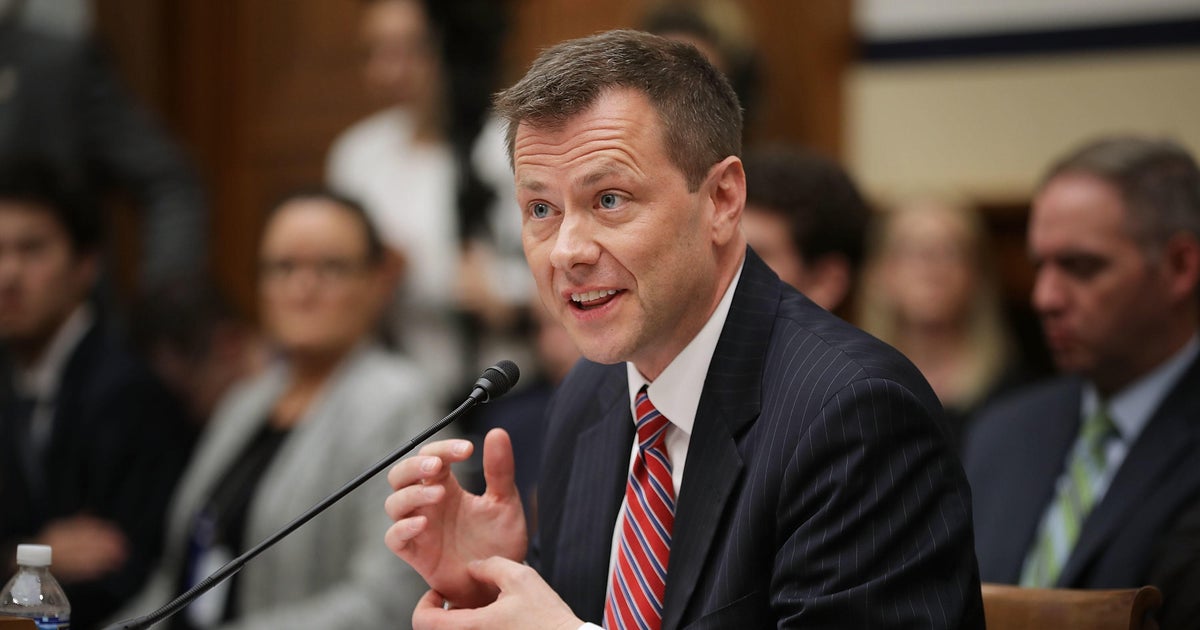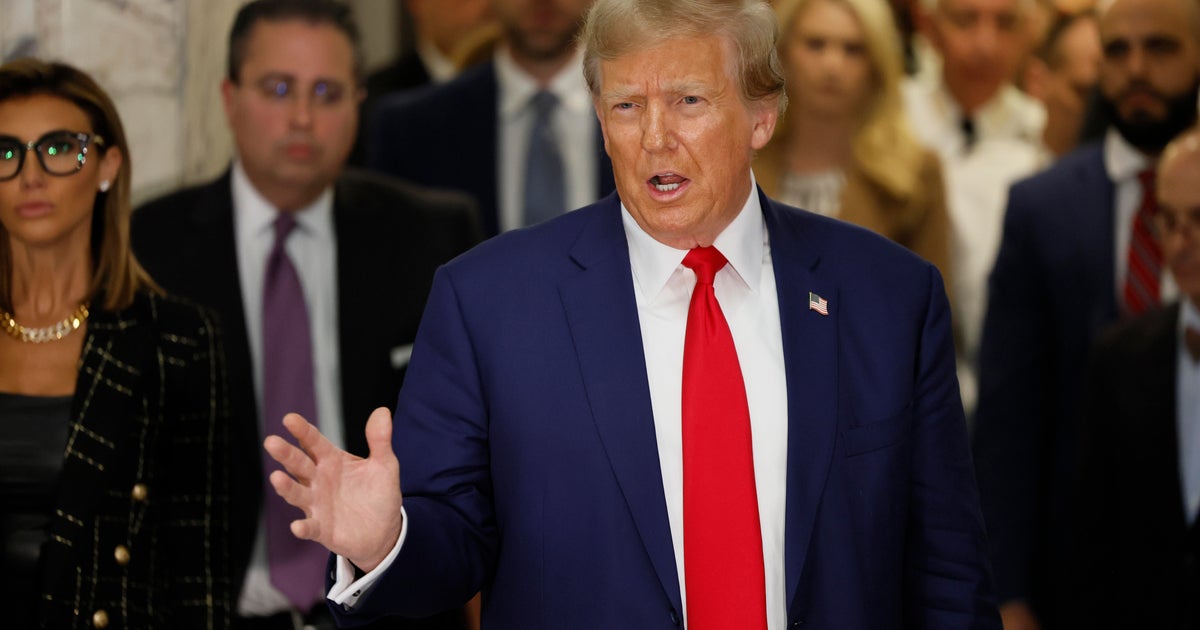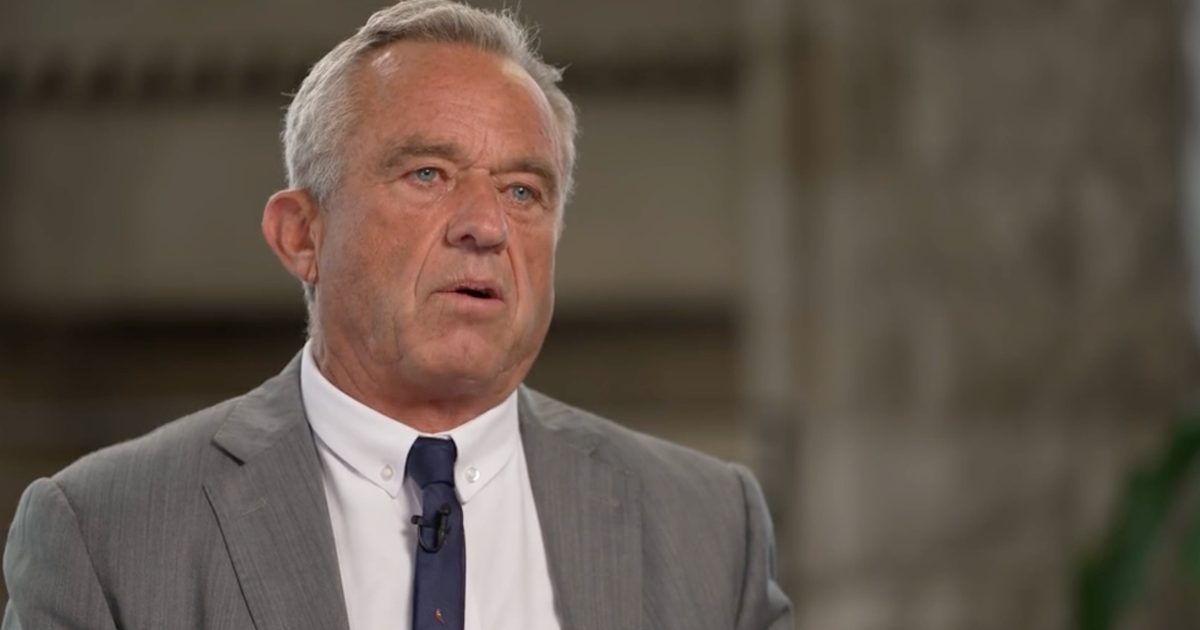Federal appeals court appears skeptical of Trump efforts to maintain special master review in documents case
Washington — A panel of three judges on the federal appeals court in Atlanta appeared skeptical Tuesday of former President Donald Trump's arguments for continuing the review by an independent arbiter of documents seized at his Mar-a-Lago resort. They raised concerns about the precedent it would set if a lower court order siding with the former president in his dispute with the Justice Department were allowed to stand.
Arguments before Chief Judge William Pryor and Judges Britt Grant and Andrew Brasher spanned roughly 40 minutes, during which the members of the panel questioned lawyers for both sides about the validity of a lower court decision granting Trump's request for the arbiter, or special master, to review the roughly 13,000 documents seized in the FBI's Aug. 8 search of Trump's Palm Beach residence. Those records are at the center of a federal investigation into the former president's handling of sensitive documents brought to Mar-a-Lago from the White House at the end of his presidency and possible obstruction of that probe.
Federal prosecutors have revealed in court filings that roughly 300 documents with classification markings have been recovered from Mar-a-Lago since January, when the National Archives and Records Administration first retrieved 15 boxes of documents from the property. Of those 300 documents, 103 records, "some indicating the highest levels of classification and extremely limited distribution," prosecutors said, were taken by the FBI during its search.
"The problem is we have to determine when it's proper for a district court to do this in the first place," Pryor told Jim Trusty, Trump's lawyer, referring to the lower court's issuing of an injunction blocking federal investigators from using the seized documents in their investigation. "Basically, other than the fact this involves a former president, everything else about this is indistinguishable from any pre-indictment search warrant, and we've got to be concerned about the precedent that we would create that would allow any target of a federal criminal investigation to go into a district court and to have a district court entertain this kind of petition, exercise equitable jurisdiction and interfere with the executive branch's ongoing investigation."
Trusty seemingly agreed, telling the court Trump is not seeking "special treatment" as a former president, but wants to prevent "the amputation of a thoughtful process" — referencing the review by the special master, Judge Raymond Dearie, of the documents seized by the FBI for material that may be subject to claims of executive or attorney-client privilege.
"This is a situation where a political rival has been subjected to a search warrant where thousands of personal materials have been taken," Trusty said. "We can't ignore that."
Still, Pryor asked Trusty to "think of the extraordinary nature" from the court's perspective of an injunction against the executive branch before an indictment. In addition to appointing the special master to review the record, U.S. District Judge Aileen Cannon also issued an injunction barring the government from using the thousands of seized documents for investigative purposes.
Federal prosecutors have asked the 11th Circuit to both end the review by the special master and lift Cannon's injunction.
"Under the separation of powers, the judiciary doesn't interfere with those kinds of prosecutorial and investigatorial decisions," Pryor said.
Pryor also pressed Trump's attorney on whether the search and seizure by the FBI was unlawful, asking rhetorically, "If you can't establish that, then what are we doing here?"
Trusty told the court Trump hoped the process might lead to such a conclusion, and suggested his lawyers have evidence the seizure of items was unlawful, raising Fourth Amendment concerns. He also alleged federal investigators exercised little discretion in what they seized pursuant to the search warrant, taking golf shirts and pictures of singer Celine Dion, and said there hasn't been "a situation in the history of this country where a sitting president authorized the raid of a presidential candidate's home." At the time of the FBI's search of Mar-a-Lago, Trump was not a presidential candidate and the Attorney General, not President Biden, authorized the search. The White House said Biden knew nothing of the decision. .
Trusty's use of the word "raid" received pushback from Grant, who asked "do you think that raid is the right term for execution of a warrant?"
Still, Pryor did not seem swayed by Trusty's concern about the sweep of the items that were taken by the FBI during its search.
"You've talked about all these other records and property that were seized. The problem is the search warrant was for classified documents and boxes and other items that are intermingled with that," he said. "I don't think it's necessarily the fault of the government if someone has intermingled classified documents in all kinds of other personal property."
Sopan Joshi, assistant to the solicitor general who argued on behalf of the Justice Department, told the court that Trump "hasn't even attempted" to show that he needs the documents returned for any purpose and said any such attempt would be an "extraordinary" burden.
"What he wants is not really the documents," Joshi said of Trump, "What he wants is to prevent the government from using the documents" in its criminal probe.
During an earlier stage in the proceedings, Grant and Brasher, both Trump appointees, were part of a three-judge panel that unanimously ruled against Trump and allowed the Justice Department to regain access to the batch of 103 documents marked classified that were initially kept from investigators.
Before oral arguments were scheduled to begin, Trump's lawyers asked Cannon to order the Justice Department to provide him with an unredacted version of the affidavit laying out the government's justification for the search warrant at Mar-a-Lago. In its motion filed with the federal district court in Florida, Trump's legal team noted the various ongoing investigations from federal and state officials involving the former president and claimed "the search smacks of pretextual conduct with hopes of feeding personal documents to prosecutors or agents who might find use for them in unrelated pursuits."
Despite prosecutors taking the unusual step of urging the court to make much of the warrant record public in redacted form, Trump's legal team said it needs access to the unredacted affidavit to "vindicate" his constitutional rights. U.S. Magistrate Judge Bruce Reinhart, who approved the search warrant, made public a redacted version of the affidavit in late August.
In filings with the 11th Circuit, federal prosecutors have argued the district court lacked jurisdiction to consider Trump's request for a special master and was wrong when it decided to intervene in the investigation. The ongoing probe into Trump's handling of the records, as well as possible obstruction related to that investigation, warrants their unfettered access to the seized evidence, the Justice Department lawyers said.
Prosecutors also told the 11th Circuit that Trump's claims of attorney-client and executive privilege — many of which have shifted over time throughout the proceedings — are unfounded.
Trump's legal team has repeatedly criticized the Justice Department's investigation as "unprecedented and misguided," and characterized the ongoing legal fight as a "document dispute that has spiraled out of control."
In their own brief to the 11th Circuit, Trump's attorneys argued Cannon's order appointing a special master is not appealable, and that Trump deemed the records he brought to Mar-a-Lago as "personal" while he was still in office, a designation allowed under the Presidential Records Act (PRA).
"It is simply untenable to conclude any president may be subject to a criminal charge for exercising the unfettered rights set forth in the PRA to categorize certain documents as 'personal' during that president's term of office," they wrote.
The Presidential Records Act distinguishes between personal records such as correspondence with a child or a birthday card, which a former president may keep, and presidential records, which have to do with the business of governing and must be kept with the National Archives after a president leaves office.
Claims of attorney-client privilege have mostly been resolved by the two parties, but Trump has argued some of the seized records belong to him in a personal capacity as the former president. His legal team has argued the documents he brought to Mar-a-Lago must be considered "presumptively privileged" by the courts and shielded from the criminal investigation until the independent review concludes.
But prosecutors have remained opposed to Trump's reading of the law, writing in part that he cannot assert executive privilege to preclude review of executive branch documents by the executive branch itself. Even if the documents were personal in nature, the Justice Department contends, they would still be subject to a court-authorized search warrant like the one executed at Mar-a-Lago.
When issuing her original ruling appointing the special master, Cannon wrote that Trump faced an "unequitable potential harm by way of improper disclosure of sensitive information to the public," but criminal investigators rarely — if ever — release seized evidence to the public unless criminal charges are filed.
After granting Trump's request for a special master, Cannon appointed Dearie, a well-known semi-retired jurist in New York, to conduct the review. He is expected to complete his work in December.
The arguments before the 11th Circuit took place days after Attorney General Merrick Garland appointed a special counsel to oversee two Justice Department investigations involving Trump: the probe into his handling of sensitive government records at Mar-a-Lago, as well as alleged efforts to obstruct that investigation, and alleged efforts to unlawfully interfere with the transfer of power after the 2020 presidential election or the counting of Electoral College votes on Jan. 6, 2021.
The Justice Department notified the 11th Circuit in a filing Monday that John "Jack" Smith had been named special counsel, and his name would appear on future filings in the matter. Additionally, Smith "has reviewed the filings in this litigation and approves of all of the arguments that have been presented in the briefs and will be discussed at the oral argument," Juan Antonio Gonzalez, the U.S. attorney in Miami, told the court.
Trump first asked the court to appoint a special master to review the seized documents in late August, two weeks after the FBI conducted the search of his office and storage room at Mar-a-Lago. Stemming from the proceedings was a separate dispute over investigators' access to 103 documents marked classified, which Cannon's original order kept off-limits to the Justice Department.
But federal prosecutors requested government investigators be allowed to regain access to the batch of records, which the 11th Circuit allowed. Trump then asked the Supreme Court to intervene and let the special master have access to the 103 documents with classification markings, but his request was turned down.



